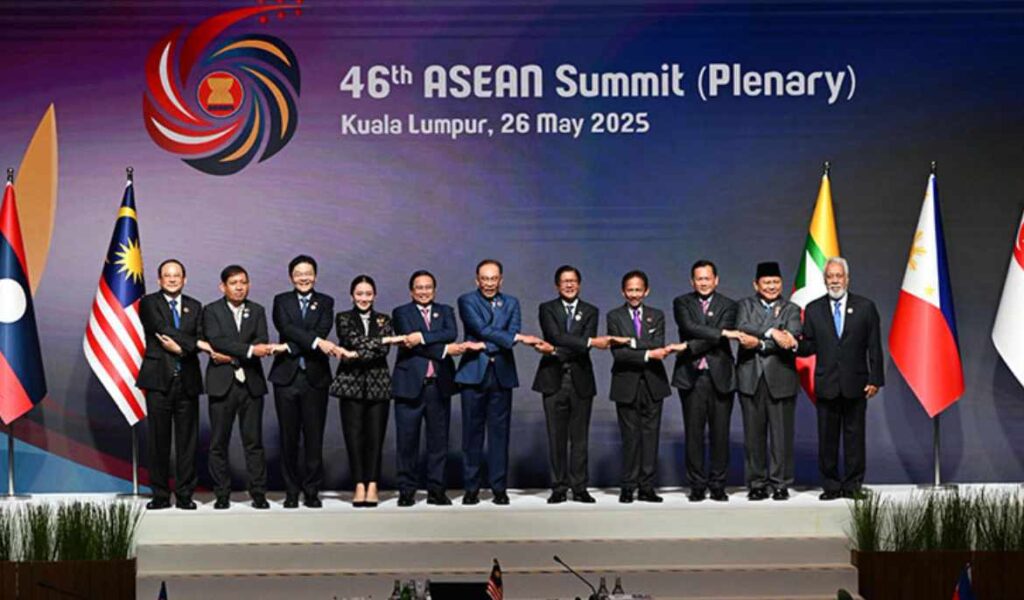ASEAN leaders yesterday called for a united response to the unilateral US tariffs, emphasizing unity and resilience amid global economic challenges.
Presiding over the 46th ASEAN Summit themed ‘Inclusivity and Sustainability’ in Kuala Lumpur, Prime Minister of Malaysia Anwar Ibrahim, also Chair of ASEAN 2025, stressed the need to address economic challenges jointly in the larger interest of the region.
“We are thankful for the spirit of centrality and the fraternity among ASEAN member states in being able to come together to forge a common front in dealing with challenges, initiatives, or pronouncements on unilateral tariffs of the US,” he said. The two-day summit was attended by all the ASEAN leaders, including Prime Minister Hun Manet.
Anwar also said that he personally wrote to US President Donald Trump regarding the efforts to organise a US-ASEAN meeting, reaffirming the 10-nation bloc’s centrality in global diplomacy.
Emphasising the ASEAN resolve to address the trade tariffs, Anwar said, “It speaks not only of our aspiration but also our obligation anchored in the conviction that the ASEAN future must rest on the twin pillars of equitable and sustainable growth, and enduring resilience.”
Speaking to Khmer Times, Hong Vanak, an economic researcher at the Royal Academy of Cambodia (RAC), said that this year’s ASEAN Summit comes at a pivotal moment as the region navigates a shift in geopolitical dynamics and seeks to reinforce its influence on the global stage.
“The initiative to strengthen unity through the ASEAN Blueprint, Scorecard, and Charter is not new. However, under the current global context, these mechanisms take on renewed importance,” he noted.
Vanak observed that prior to the Trump administration, ASEAN’s joint development policies often remained limited to official documents, with minimal real-world implementation. “It wasn’t until the imposition of unilateral tariffs that we began to see genuine ASEAN solidarity in action,” he explained.
He stressed that while ASEAN is economically powerful as a whole member states often prioritise strategic ties with global powers such as the United States, Russia, and especially China.
“ASEAN’s economy is huge. Rather than waiting on engagement from nations grappling with internal issues, we should focus on strengthening regional trade and aim for deeper cooperation, similar to the European Union,” he added.
Earlier, speaking to Khmer Times, Dr Jayant Menon, a Visiting Senior Fellow at the Institute of Southeast Asian Studies (ISEAS-Yusof Ishak Institute) in Singapore, said that ASEAN countries should negotiate with the US as a group.
“This is very important because there is weight in numbers. Individual countries should not start negotiating directly with the US, even if it is tempting to do so. Having a common ASEAN position in engaging the US is critical to securing the best outcome for all of ASEAN members.”



